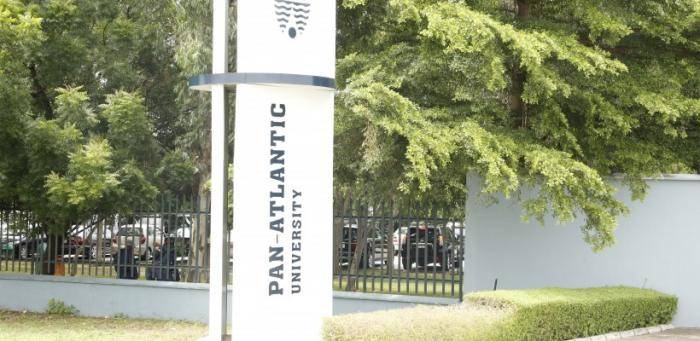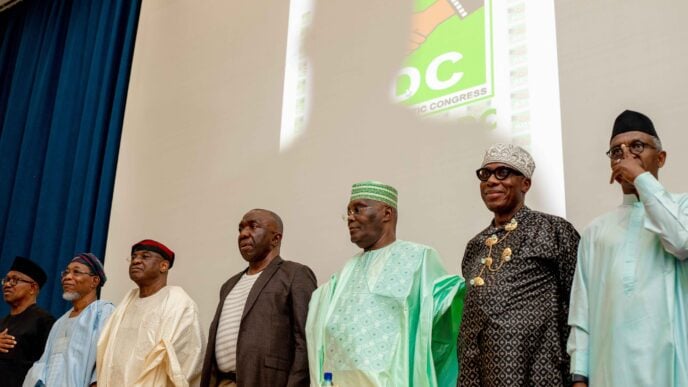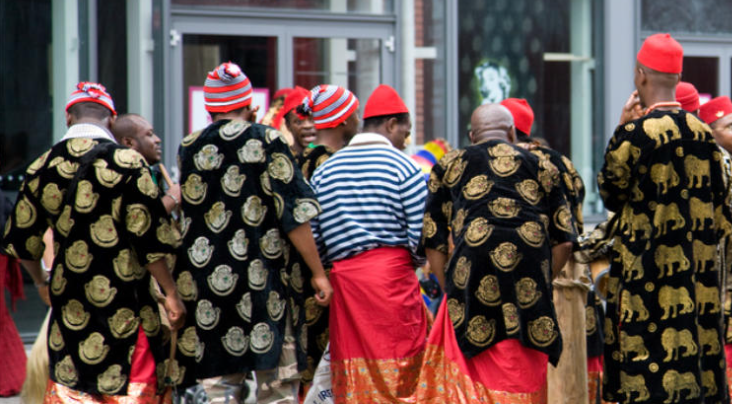Stepping into the premises, the quiet and organised atmosphere immediately holds you captive. The buildings are modern yet welcoming, surrounded by well-kept lawns that create a sense of calm. You get the River Jordan experience of Naaman: freed and released from the chaotic lifestyle that is second skin to Lagos dwellers.
Blending with the unseen elements of Ibeju-Lekki, the Pan-Atlantic University (PAU) environment feels professional but not intimidating — a space where you can concentrate, think clearly, and engage with others in a respectful, supportive community bound by Christian ideals.
“The environment encouraged learning and facilitators were experienced in their subject matter,” a former student said about education in the institution.
“PAU gave me what I needed to move forward from my initial state. Education was applicable, and I could run with it as soon as I was done.”
Advertisement
From holding seminars in temporary premises in Victoria Island in 1991 as the Lagos Business School (LBS) to the federal government’s approval of PAU with the LBS as its first school, the university has evolved from a rich history to a renowned private institution in Nigeria, offering professional, executive, and undergraduate programmes.
I was recently selected as one of the fellows for the fourth edition of MTN Nigeria’s media innovation programme (MIP).
The MTN-MIP is a capacity-building initiative for media practitioners in Nigeria, run by the School of Media and Communication of the PAU.
Advertisement
The scheme is a fully funded certificate fellowship for innovative storytellers and media leaders that will equip them with new skills needed to function in the rapidly changing media world.
When I was informed of my selection, I asked a friend who had undertaken a professional programme at the institution about what to expect.
“PAU is world-class and nothing compared to what we had. Our lecturers were knowledgeable, but weren’t practitioners of the knowledge they had,” she said.
“What I learned during my first degree was basic compared to how it applied to real-world experience. Knowledge at PAU came, not just from dissertations and theses, but from real-world experience.”
Advertisement
It has been three weeks of intense academic activities so far, and I now have the chance to share my thoughts on how the PAU is quietly changing the perception of and making education easy.
‘In my class, you’ll dance’
The ‘warning’ was part of the introduction of Silk Ogbu, a businessman who had failed in politics after nearly getting broke from investing in a governorship election, but now finds satisfaction in imparting knowledge by knitting music and course content.
My colleagues and I did not fully understand what the statement meant until the lectures began on Emotional Intelligence, Decision Making Process, and Stakeholder Relations Management.
Advertisement
Ogbu expertly infused different sounds into his slides. In between the five-hour session, he would ask us to dance and sing along. From Enjoy Yourself, a 1950 piece by Doris Day, to How Are You My Friend, a modern Afrobeat tune by Johnny Drill, each song summarises his presentation, conveying lessons on stakeholder management, self-care, and decision-making.
Emotions were triggered (positively), colleagues soon started sharing hugs, and the conversation lasted all the way home.
Advertisement
‘Side Hussle’
Every lecturer or faculty member at PAU is a practising professional. This is so because the university encourages lecturers to consult to support their earnings. It is called ‘side hustle’ among the younger generation, but it is very uncommon in public universities.
Advertisement
“It’s in our contract,” a lecturer said during a session.
Institutionalising the ‘side hustle’ concept shows the university is concerned about the welfare of its staff members. While it is good for the faculty members, students benefit from the experiential knowledge facilitators get from practising in their various fields, as theories can be easily interpreted or explained with real-life experiences and trends.
Advertisement
Simplicity, instant classroom exercises, and tech adoption
By my observation, most classes were straightforward, and facilitators made a concerted effort to explain concepts thoroughly. The classrooms are modern, equipped with air conditioners and projectors, emphasising tech adoption in delivering lectures. This also hints at the level of funding that goes into a university that is trying to remain on the Financial Times’ ranking.
Understanding is tested with instant classroom group exercises and presentations — a great way for lecturers to get immediate feedback.
Students can challenge lecturers
In my undergraduate days, lecturers were feared. An open debate with some of them could earn you an extra year. It is not so at PAU.
During a class on some productivity tools, such as Canva and Figma, the faculty told me why they are required to be well prepared before entering the classroom.
“Our students are allowed to challenge us,” he said.
A simple act that also encourages this is the attempt by the facilitators to establish a relationship with students and the zero focus on titles. I had a mild debate with PAU’s dean of the school of media and communication on a subject matter I did not agree with, without knowing it he was the dean.
Maybe out of respect or avoiding the risk of being perceived as confrontational, I would have kept to myself if he had introduced himself as the dean or had dean attached to his name in his presentation.
The impetus to speak in the first place was fuelled by the lecturers’ constant reminders that students can interrupt them at any point during a session for questions or clarifications.
“Simplicity. One’s title does not make one great. Instead, it is your contributions/ contents that should scream your titles aloud,” said Chike Mgbeadichie, head of the department of communication, media and cultural studies at PAU.
Allowing students to speak freely without the concern of victimisation fosters an environment for learning and critical thinking.
BUT…
Many Nigerians will never experience the quality that PAU offers. With tuition fees starting from N5 million for undergraduate studies, the gates of the PAU are shut to many Nigerians, even though there are financial aid programmes and scholarship opportunities for indigent Lagosians.
The high cost also means classes are small, allowing for personalised attention and mentorship from lecturers.
Views expressed by contributors are strictly personal and not of TheCable.










